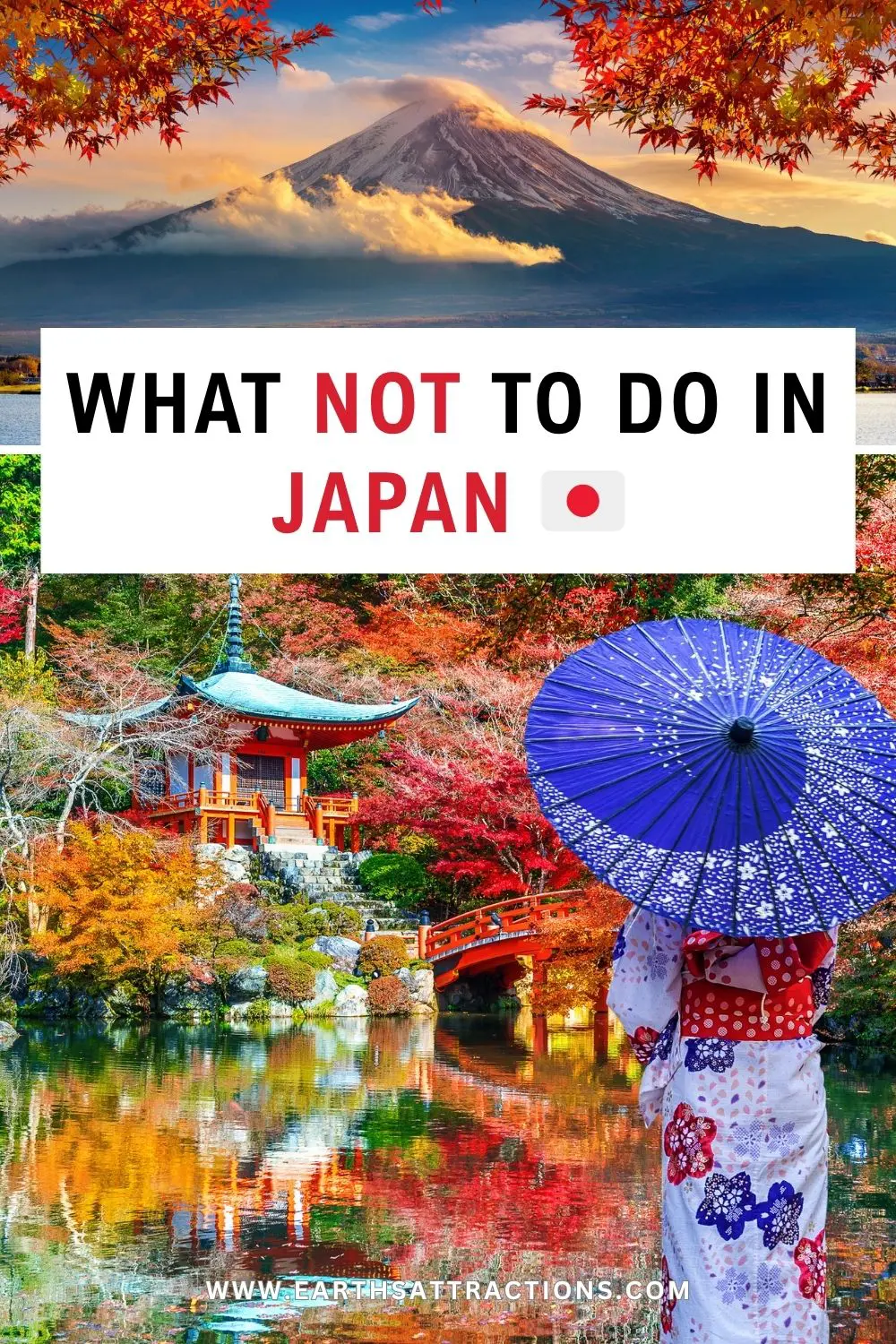Japan often feels like a utopia of polite civility – where people bow, streets are spotless, trains are silent, and service feels flawless. Many travelers arrive expecting the same freedoms they enjoy elsewhere, assuming it’s a “forgiving” country for tourists.
But Japan’s deeply rooted cultural etiquette goes beyond mere manners – and violating it can earn you disapproving glares, hushed whispers, or, in some cases, confrontation or even legal trouble.
In Japan, social norms matter as much as laws. What looks like a small misstep – a loud phone call on a train, an unsolicited tip, or a forbidden photo – can spark strong local reactions. The key is humility: when in doubt, observe what locals do, and adapt.
This article presents the most common tourist mistakes that get foreigners shamed in Japan (or even fined or jailed) – and how to avoid them.
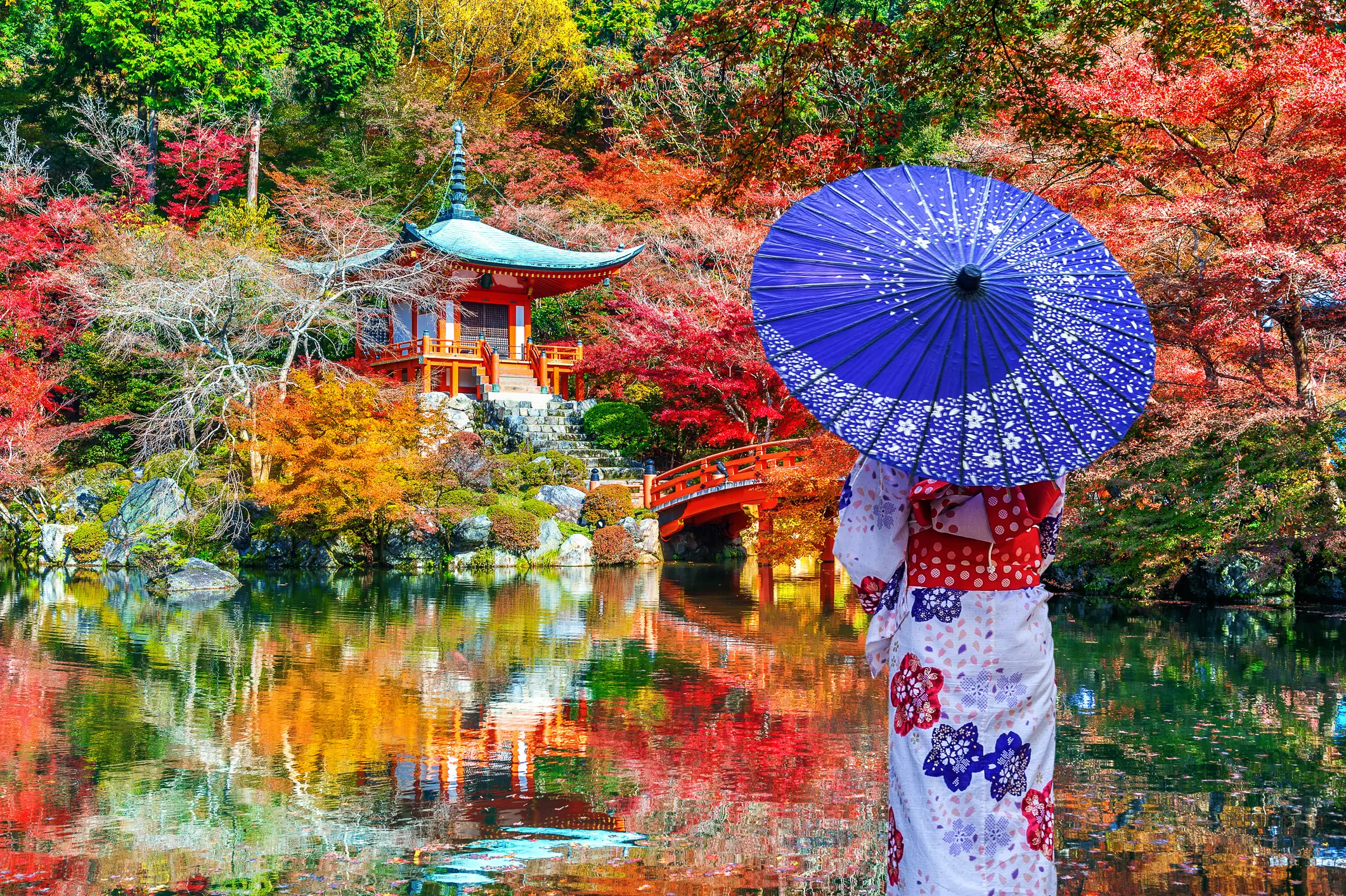
ID 133645514 ©Tawatchai Prakobkit | Dreamstime.com
Discovering Japan Beyond the First Impression
Japan is a country that rewards curiosity and respect in equal measure. Beyond the neon lights of Tokyo and the ancient calm of Kyoto, every region has its own rhythm – from the lakeside serenity of Fujikawaguchiko, where Mount Fuji mirrors perfectly in the water, to the modern pulse of Nagoya with its mix of innovation and tradition.
If you’re planning your first visit, it’s worth diving deeper before you go. Our Japan travel tips for first-time visitors cover essential advice – from money and transport to etiquette – while this Tokyo guide prepares you for the delightful (and sometimes surprising) contrasts of Japan’s capital.
And if you love unique experiences, Japan’s café culture alone could fill a trip itinerary. From owl cafés to robot waiters, these quirky and unusual cafés show just how creative daily life can be here. Pair that with a stroll through Kyoto’s timeless temples or the lakeside peace of Fujikawaguchiko, and you’ll quickly see why Japan captivates travelers year after year.
But to truly enjoy every moment – and every meal, shrine, and train ride – it’s important to understand the country’s social code. The following sections reveal the key mistakes tourists often make in Japan – and how to avoid them with grace and respect.
The Mistakes That Get Tourists Shamed in Japan – And How to Avoid Them
1. Tipping: When You Mustn’t Tip
One of the biggest surprises for visitors is that tipping is taboo in Japan. Unlike in Western countries, leaving a tip is not seen as gratitude – it’s seen as awkward or even insulting, implying the worker isn’t paid enough.
Reality & Exceptions
Don’t tip in restaurants, taxis, cafés, or hotels. Service is always included.
In traditional ryokan inns or with a personal attendant (nakai-san), it’s polite to give a small gratuity (~¥1,000) discreetly in a decorative envelope.
Even when offered properly, the staff may politely decline the money. If they do, accept the refusal graciously – a sincere verbal thank you or a positive online review is often appreciated just as much or more.
2. Onsen & Bathing Etiquette
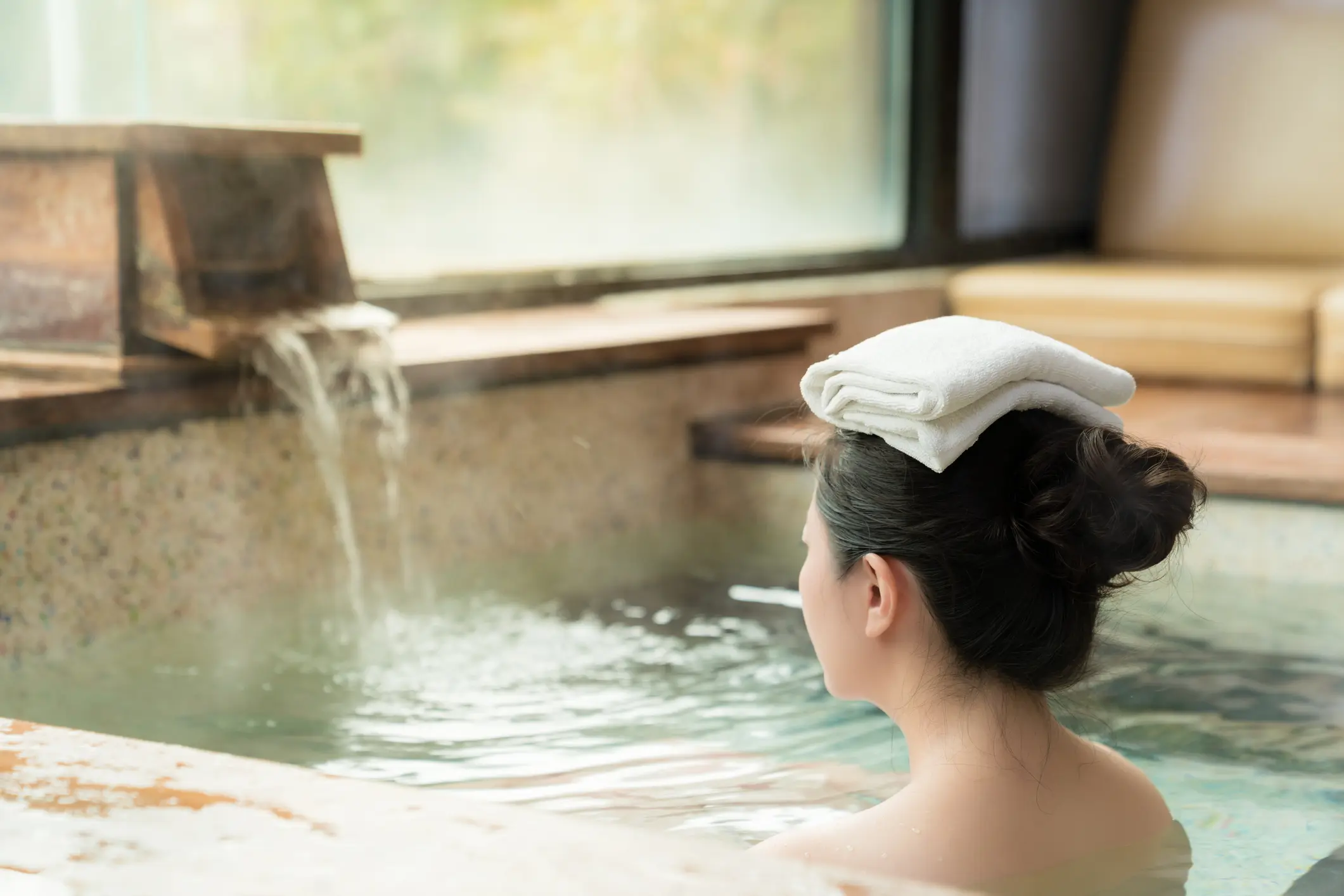
ID 105287646 ©Chih Yuan Wu | Dreamstime.com
When I watched James May: Our Man in Japan, one of the most memorable moments was when he visited an onsen and was gently shown the proper etiquette – even what to do with the small towel. (Yes, the modesty cloth is placed on your head while you soak!) That scene perfectly illustrated what Japanese friends had told me: bathing here is more about respect and ritual.
Japan’s onsen (hot springs) and sento (public baths) are sacred spaces for cleansing body and mind – and come with strict, unwritten rules.
✅ Key Rules
- Wash before entering: Scrub thoroughly at the washing station.
- No soap in the bath: The water is for soaking, not cleaning.
- No swimwear: Everyone bathes nude (separate sections for men and women).
- Tattoos: Still taboo at many onsens due to their association with organized crime (yakuza). Some accept tourists with small tattoos if covered with patches.
- Quiet atmosphere: No shouting, splashing, or swimming.
- Hair control: Tie up long hair to keep it out of the water.
Caution: If your tattoo is visible, you might be denied entry. Always check for “tattoo-friendly” onsens before visiting.
3. Silence Is Golden: Trains and Public Transport
I LOVE this! Because I am not a fan of loud conversations on the phone and there are soooo many things a person should NOT do on public transport.
Japan’s public transport runs like clockwork – and silence is part of the system.
- No phone calls: Keep your phone on silent mode (or vibrate mode) and avoid talking on the phone.
- Keep quiet: Even normal conversations should be subdued. Loud laughter or chatting draws attention.
- Respect space: Don’t block aisles or take extra seats.
- Queue properly: Wait in line; don’t rush the doors.
- Don’t eat or drink on local or commuter trains – this is frowned upon.
These are cultural norms, not laws – but ignoring them guarantees glares or disapproval.
4. Eating on Trains: When It’s Allowed (and When It’s Not)
This is one of the most misunderstood points among visitors.
Local and Commuter Trains
Eating on local, metro, or short-distance trains (like those in Tokyo or Osaka) is considered bad manners. It’s not illegal, but it’s socially unacceptable unless the train is nearly empty. Even opening a snack can be seen as inconsiderate.
Exception: It’s generally fine to discreetly drink water or non-alcoholic beverages from a bottle with a cap.
Long-Distance, Shinkansen & Limited Express
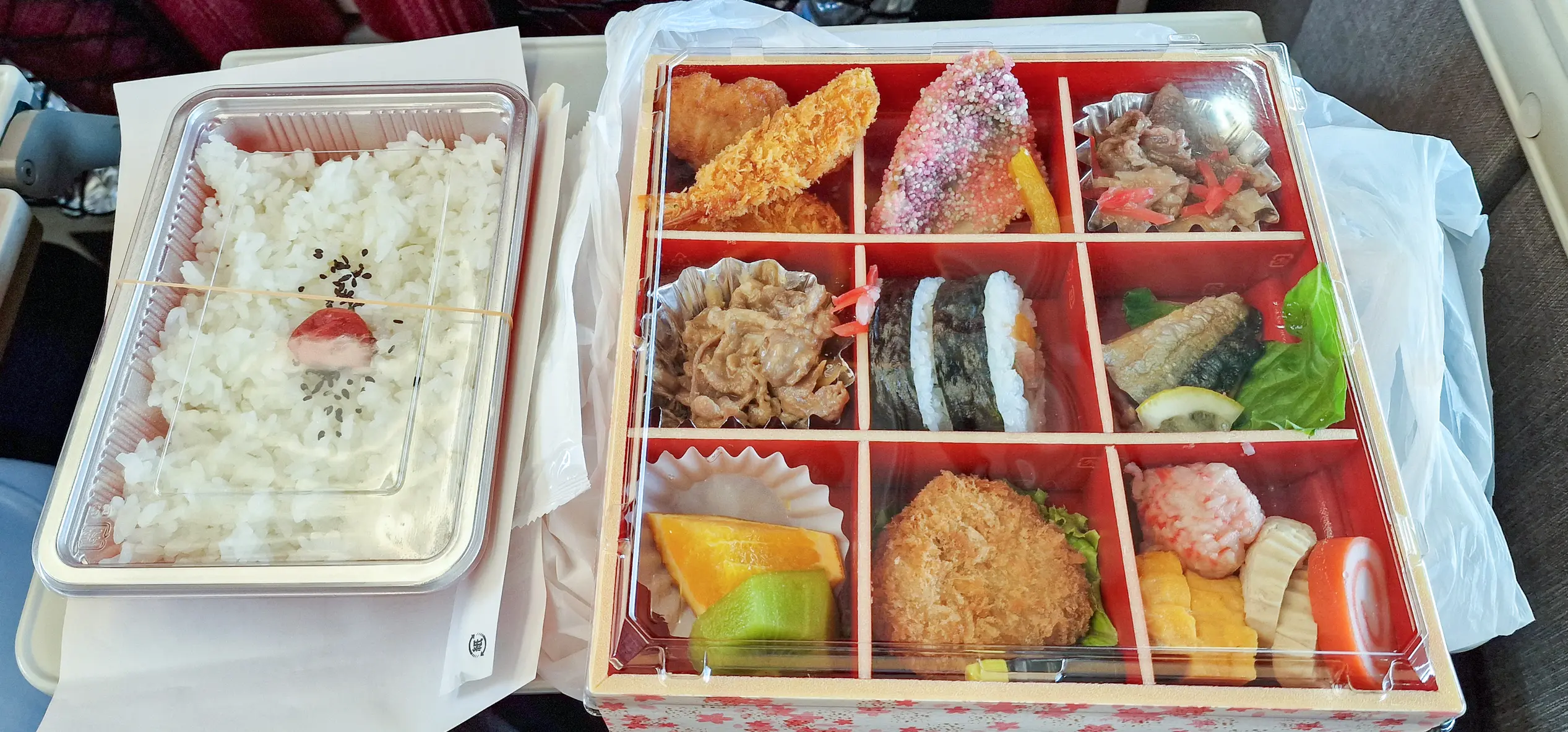
ID 369664400 ©Emma Ros | Dreamstime.com
On Shinkansen (bullet trains), limited express trains, and airport lines, eating is perfectly fine. Many even have tray tables, food trolleys, and trash bins. Travelers often buy ekiben (station lunch boxes) to enjoy during long rides.
Rule of Thumb
If your seat has a fold-down tray, eating is acceptable. If not, wait until you reach your destination.
5. Chopsticks & Table Manners
Meals in Japan are quiet moments of appreciation, not rushed affairs. Every gesture – how you hold your chopsticks, how you eat, how you finish your meal – carries meaning.
Even small table manners matter, and a tiny misstep can stand out quickly in a culture where politeness is part of the dining experience.
- Never stick chopsticks upright in rice. This mimics funeral rites.
- Don’t pass food from chopstick to chopstick. This also resembles a funeral custom.
- Don’t rub disposable chopsticks together – it suggests cheap quality.
- Avoid pointing or gesturing with chopsticks.
- Use “itadakimasu” (literally translated as “I humbly receive”) before eating and “gochisōsama deshita” (“Thank you for the meal (it was a feast)”) afterward – expressions of gratitude.
These aren’t laws, but breaking them will definitely get you noticed – and not in a good way.
6. Photography, Privacy & Sacred Sites
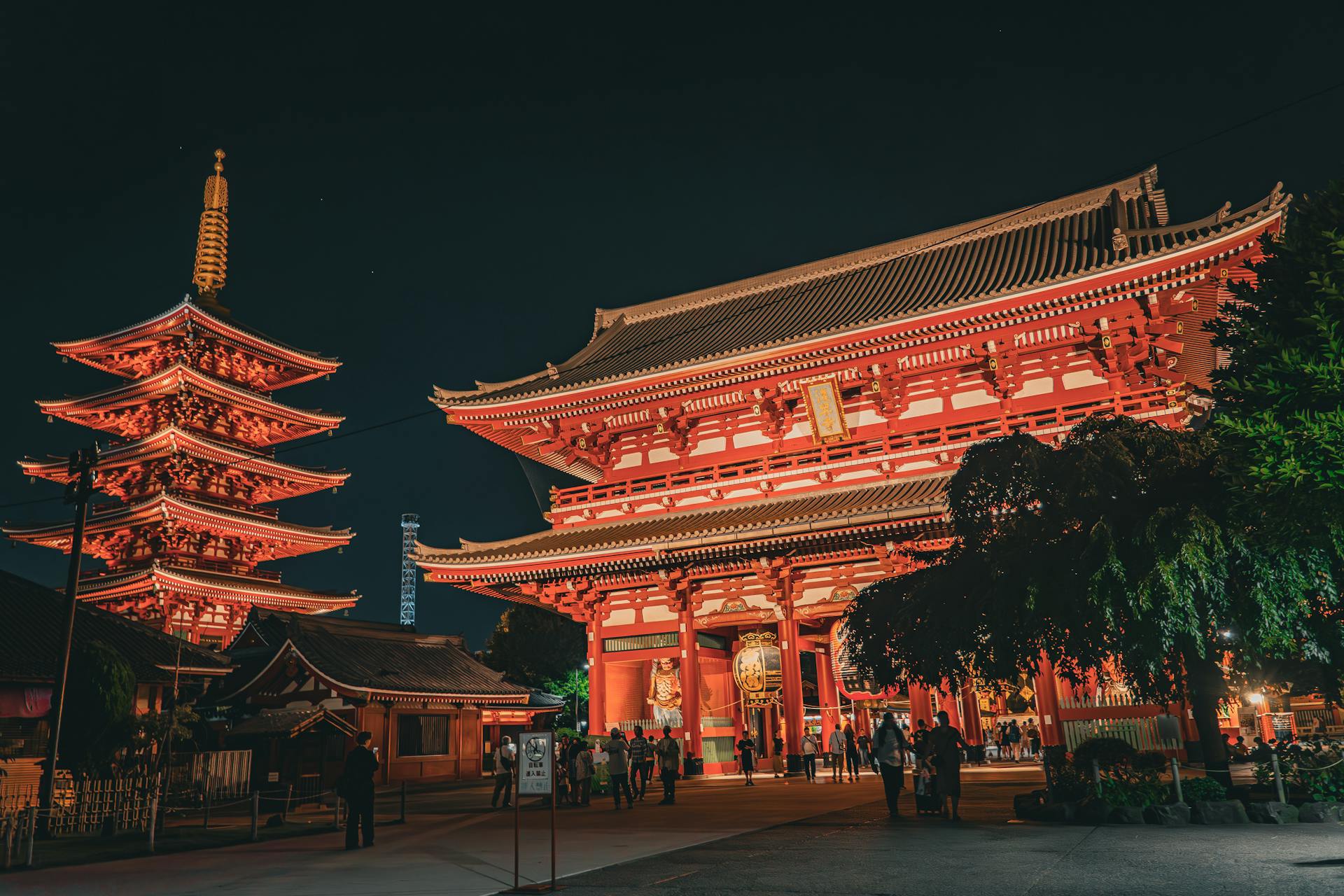
Tourists often assume that “public space” equals “public photo,” but that’s not true in Japan.
- Shrines & temples: Photos may be banned indoors or near altars. Always look for signs.
- Kyoto’s Gion District: Since 2019, taking photos of geisha or maiko in private alleys can result in a ¥10,000 fine (~$90).
- Sacred defacement: Under Japan’s Penal Code (Article 188), defiling shrines or temples can lead to 6 months in jail or a ¥100,000 fine.
- Vandalism: Damage to cultural property can mean up to 5 years in prison or a ¥1,000,000 fine.
Caution: Photographing people (especially women or children) without permission is risky – and posting those images online can violate privacy or defamation laws.
7. Smoking, Littering & Public Cleanliness
Japan is famously clean – and expects visitors to maintain that standard.
- Smoking: Only allowed in designated areas. Street smoking bans exist in Tokyo, Osaka, and other major cities. Fines can reach ¥20,000.
- Littering: Trash bins are rare – people carry their garbage home. Littering can lead to local fines.
- Spitting: Considered deeply rude.
- Chewing gum & walking: It’s acceptable, but don’t stick gum anywhere – fines for vandalism apply.
Tip: Always carry a small plastic bag for your trash. Locals do it too.
8. Neighborhood Noise & Everyday Etiquette
Japan prizes peace and quiet, especially in residential areas.
- Don’t play music loudly, even during the day.
- Keep your voice low in apartments or hotels.
- Avoid dragging luggage late at night through small streets.
- Follow local garbage collection schedules. Incorrect sorting or timing can lead to complaints.
Even Airbnb guests are expected to follow these norms. Excessive noise or ignoring neighborhood rules has led to restrictions on short-term rentals in cities like Kyoto and Tokyo.
Practical Tips to Avoid Shame (or Worse)
- Observe before acting: If locals aren’t doing something, don’t do it.
- Be humble: If corrected, bow and say “sumimasen” (I’m sorry).
- Bring omiyage: A small gift or local snack shows respect when visiting homes or hosts.
- Read signs carefully: They often clearly state “no photos,” “remove shoes,” or “quiet please.”
- Learn the basics: Knowing a few phrases like “konnichiwa” (hello) and “arigatou” (thank you) goes a long way.
Final Thoughts: Respect, Not Fear
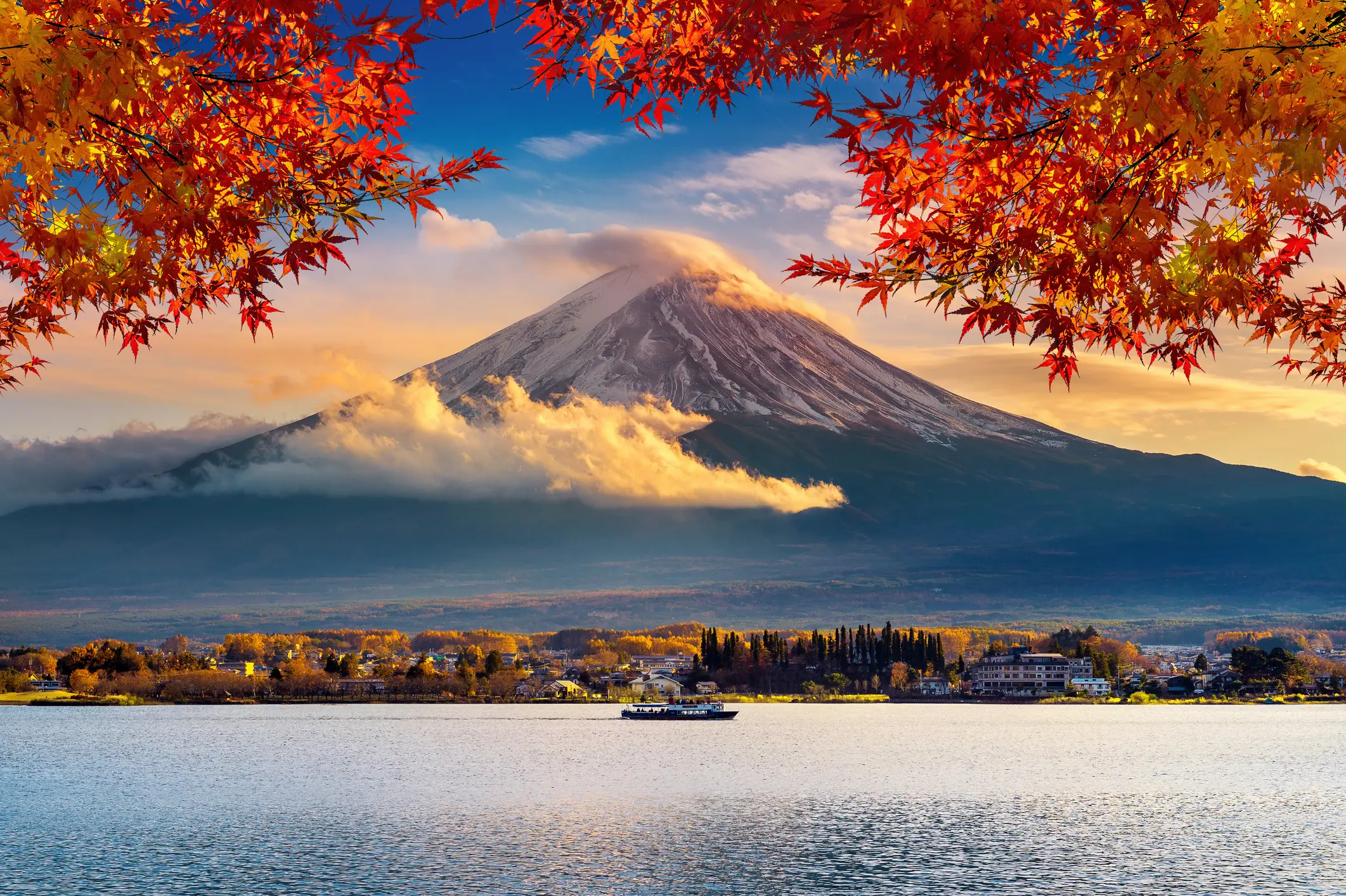
ID 160331858 ©Tawatchai Prakobkit | Dreamstime.com
Japan isn’t out to punish tourists – it simply expects respect and awareness. These unspoken rules exist to protect harmony, heritage, and daily life.
If you walk softly, remove shoes indoors, avoid loud calls, follow onsen rules, and ask before photographing people or sacred spaces, you’ll be seen as someone who understands the spirit of Japan.
In the end, respect is visible – and it’s the easiest way to earn admiration in one of the world’s most courteous cultures.
May your journey through Japan be peaceful, mindful, and unforgettable – for all the right reasons.
Frequently Asked Questions About Japan Travel Etiquette
1. Can you eat on trains in Japan?
Only on long-distance trains like the Shinkansen or limited express lines. Local commuter trains in Tokyo and Osaka discourage eating or drinking.
2. Are tattoos still banned in Japan’s hot springs (onsen)?
Many onsens still restrict tattoos, though “tattoo-friendly” locations are increasing. Always check their policy before entering.
3. Is it illegal to take photos of people in Japan?
It’s not illegal to photograph people in public, but posting or selling those photos without consent can violate privacy or defamation laws – especially for women or children.
4. Why shouldn’t you tip in Japan?
Tipping is considered rude because service charges are already included, and good service is seen as part of professional pride.
5. What happens if you break etiquette in Japan?
Most mistakes just earn quiet disapproval – not legal trouble. However, serious violations (like vandalism or harassing photos) can result in fines or arrest.
Photo sources (other than Dreamstime): 1

